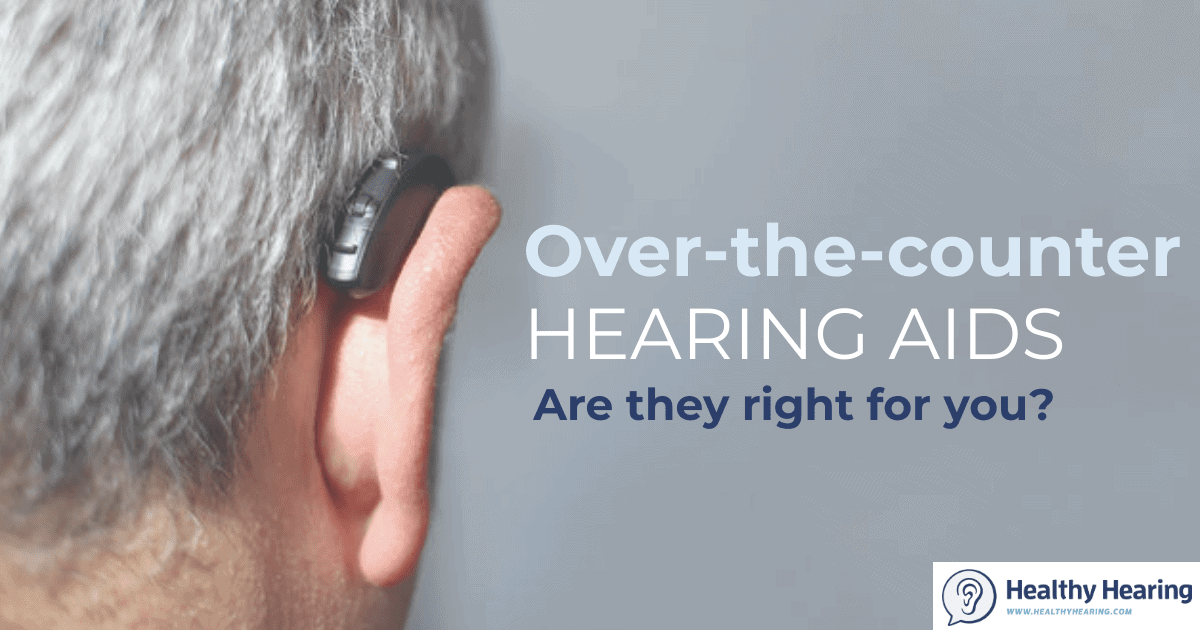On August 16th the US Food and Drug Administration finalized its rules for the creation of a new class of over-the-counter (OTC) hearing aids that are designed to make amplification more affordable and accessible to consumers (ages 18+) with mild to moderate hearing loss. Five years in the making, these new rules allow hearing aids to be sold over the counter. This provides a path for consumers to purchase hearing aids directly from stores or online retailers without the need for a medical exam, prescription, or fitting by a licensed hearing care provider.
The FDA’s OTC hearing aid rule has taken over 5 years. Original OTC Hearing Aid legislation was first passed by Congress and signed by President Trump in August 2017, and it gave FDA a full 3 years to craft the rules, with a deadline of August 2020. However, Covid-19 consumed the FDA’s resources with an “all-hands-on-deck” response to the pandemic, creating a large backlog of approvals and work for the Agency.
Expectations for over-the-counter hearing aids
Ultimately, the hope is that over-the-counter hearing aids will get amplification into people’s ears much sooner. Previous studies suggest that consumers wait on average 7-10 years before purchasing a hearing aid. Increasing evidence points to how untreated hearing loss is an expensive and debilitating healthcare problem that increases the risk of dementia, negatively impacts general health, increases falls and injuries, degrades aspects of memory and cognitive function and overall quality of life, places burdens on marital/conjugal relationships, negatively impacts income, and is also linked to a variety of chronic illnesses.
It is hoped this new class of over-the-counter hearing aids will allow people to experience better hearing and communication earlier in the aging process, and to seek help from trained hearing care providers should these new devices not work for them and/or their hearing loss becomes more severe or problematic.
With this news comes the good and the concerns. We have seen the affects of untreated hearing loss as many of our patients have waited years to establish a hearing healthcare plan. Adaptation to amplification and the effect on cognitive processing is a concern. As we would all like to see people address their hearing issues soon, we have several concerns regarding this ruling.
Affordability is repeatedly touted as the cause of consumers not moving forward with amplification. In countries where hearing healthcare is provided at no cost, adaptation of hearing aids is no greater than here. Time will tell. We do, however, offer devices to meet your needs and budget while providing professional care and support.
Over-the-counter hearing aids VS prescription hearing aids
When you look at the big picture, over the counter hearing aids and prescription hearing aids serve the same purpose of helping people with hearing loss to hear more clearly. However, there are several differences between the two types of hearing aids.
OTC hearing aids are designed to be sold directly to consumers without a prescription or a visit to an audiologist. They are usually more affordable than prescription hearing aids and can be purchased in stores or online. Over-the-counter hearing aids are intended for people with mild to moderate hearing loss.
Meanwhile, prescription hearing aids are only available with a prescription from an audiologist or other hearing healthcare professional. They are designed to be customized to meet the individual needs of the user, with advanced features such as directional microphones, noise reduction, wireless connectivity, and feedback management. Prescription hearing aids can be programmed and adjusted by an audiologist to ensure optimal performance and comfort.
The main advantage of OTC hearing aids is their accessibility and affordability. They can be a good option for people with mild to moderate hearing loss who do not want to spend a lot of money on hearing aids or who live in areas without nearby access to audiologists or hearing healthcare professionals.
Prescription hearing aids provide a higher level of customization which can lead to better hearing outcomes. These devices also offer a wider range of features and are suitable for people with more severe hearing loss or other medical conditions that affect hearing.
Ultimately, the choice between OTC hearing aids and prescription hearing aids depends on the individual’s unique hearing needs and preferences, as well as the severity of their hearing loss and underlying medical conditions. It is best to consult with an audiologist or hearing healthcare professional before making a decision on which type of hearing aid to purchase.
Our take on over-the-counter hearing aids
With this new ruling, the purchase of over the counter hearing aids does not require a diagnostic hearing evaluation. It is probable that consumers will purchase an over-the-counter device when medical or surgical intervention would correct the hearing loss. We recommend always getting an evaluation first.
Remember, these devices are intended for individuals with mild hearing loss. We are also concerned that many consumers may purchase an over-the-counter hearing aid, not find it beneficial and will think “hearing aids don’t work for me”. They will not seek professional care, but the fact is that the device is not appropriate for that hearing loss, their lifestyle or needs.
For some consumers this is maybe what they need, just like my reading glasses are great for me when I am home reading the newspaper. But my prescription bifocals are what I need at the office when caring for my patients.
When it comes to hearing aids, we encourage you to be careful and don’t be impulsive in purchasing one just for the sake of it. Be careful of over the counter hearing aids. If you have questions about what is right for you, give Jamie or Diane a call at 704-633-0023 or visit our website: www.hearingsolutionsofnc.com. Jane, Cheryl, and I look forward to seeing you soon.

